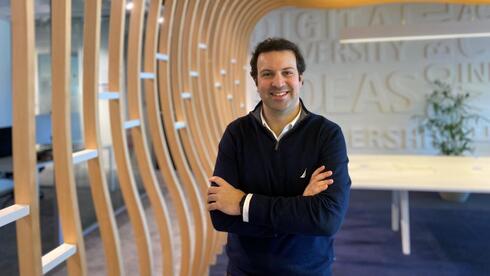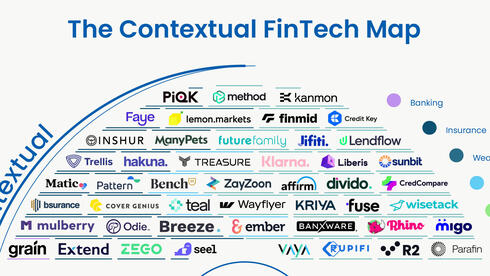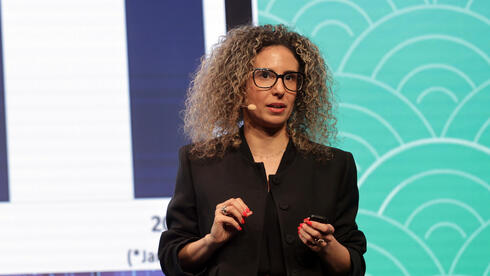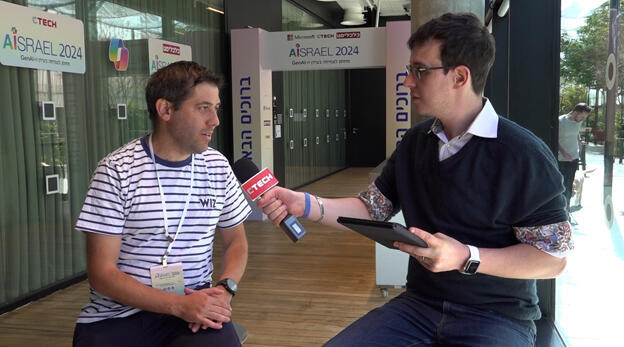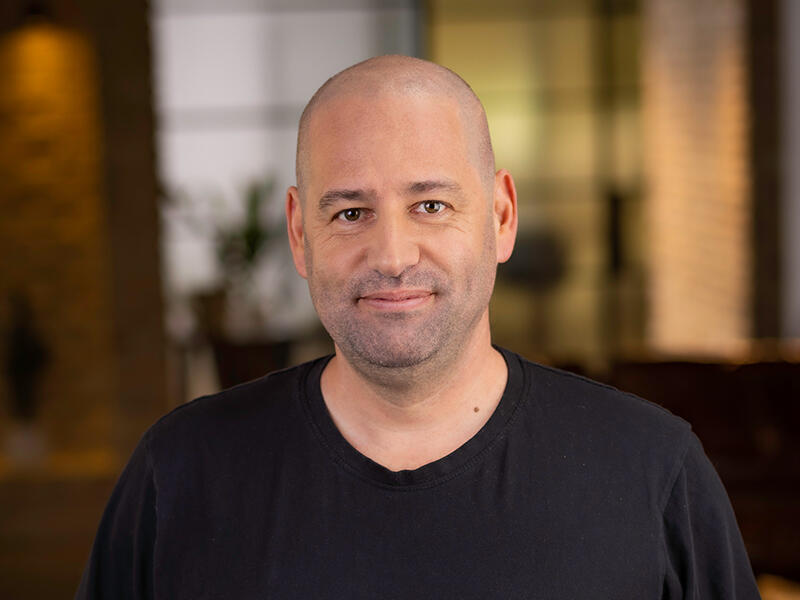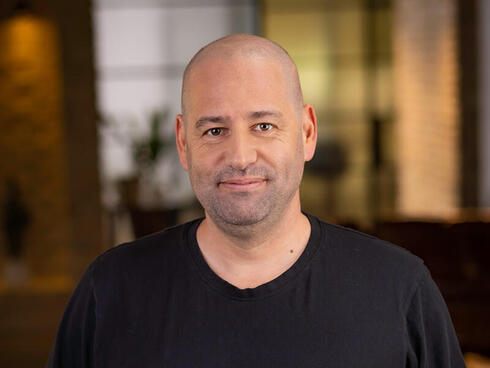
2024 VC Survey“Despite these nightmare circumstances, founders maintained focus and resilience.”
2024 VC Survey
“Despite these nightmare circumstances, founders maintained focus and resilience.”
Shahar Tzafrir, Managing Partner at TLV Partners, joined CTech for its 2024 VC Survey to share how the country is combatting an economic and security crisis
“The harmful, purposeful conduct of the Israeli government had a very negative impact on all sectors of the economy and society,” said Shahar Tzafrir, Managing Partner at TLV Partners. “This, coupled with the horrendous, monstrous attacks on Israel by Hamas and Hezbollah, tested the nation's resilience.”
Tzafrir joined CTech to discuss how Israel’s recent year has impacted Startup Nation. Despite the challenges, he says that these issues have highlighted the “remarkable solidarity that persists in Israel” despite some of the actions taken by the Israeli government and the despicable Hamas attack.
“In the high-tech sector specifically, the strength and resilience of Israeli founders and teams were evident,” he added. “Despite these nightmare circumstances, founders maintained focus and resilience, keeping their companies afloat and moving on the offense to increase sales where possible.”
VC fund ID
Name of the fund: TLV Partners
Total assets: $1 billion
Leading partners: Rona Segev, Eitan Bek, Shahar Tzafrir, Adi Yarel Toledano, Brian Sack, Yonatan Mandelbaum
Latest investments in Israel: March 2024
Selected portfolio companies: Aqua Security, Next Insurance, Aidoc, Run:ai, Silverfort, Quantum Machines, Unit, Immunai, Deepcure, Buildots, Zencity, Firebolt, Mesh Payments, Oligo Security, and Port.
From your perspective, was 2023 a ‘lost year’, or can the events that happened during it be seen as a springboard for opportunities in 2024?
2023 was not a lost year despite the significant challenges it presented. The harmful, purposeful conduct of the Israeli government had a very negative impact on all sectors of the economy and society. This, coupled with the horrendous, monstrous attacks on Israel by Hamas and Hezbollah, tested the nation's resilience. However, these events also highlighted the remarkable solidarity that persists in Israel despite the disappointing negligent actions of the regime.
In the high-tech sector specifically, the strength and resilience of Israeli founders and teams were evident. They joined en masse to protest the government's destructive conduct, participated in reserve duty beyond their societal obligations, and coordinated volunteering efforts. Despite these nightmare circumstances, founders maintained focus and resilience, keeping their companies afloat and moving on the offense to increase sales where possible. This period proved that in hard times, those who aim for greatness not only survive but can thrive.
What do you believe is more crucial to the state of Israeli tech: the influence of global processes and the global economy, or the local events ranging from the political protest to the war state?
Israeli tech is primarily influenced by global market trends, evident in investment patterns, fundraising amounts, and sector innovations. However, this global alignment depends on the stability of the local Israeli economy. The Israeli government's recent economic decisions pose a risk to this equilibrium. So far, Israeli high-tech has been resilient to local economic shifts, aligning more with global trends. But there's a looming danger that continued poor governance could disrupt this balance and significantly harm Israeli high-tech.
Has the prestige of Israeli high-tech been damaged, or are the protests and the war merely a 'small bump in the road' from which the sector can recover within months?
The prestige of Israeli high-tech remains robust. The recent protests actually enhanced our global reputation, showcasing the sector's commitment to democratic values. Regarding the conflict with Hamas and the potential escalation with Hezbollah, there's a further risk that the increasing 'Woke' movement could negatively impact Israel's overall image. However, the high-tech sector continues demonstrating resilience and innovation, maintaining prestige.
How much effort was required of you to maintain the fund's status with your investors in 2023? What were their primary concerns and how did you address them?
In 2023, TLV Partners faced challenges due to Israel's political turmoil and governmental corruption. Despite these issues, we successfully raised our fifth fund of $250 million, bringing our total managed assets to over $1 billion. Our investors initially expressed concerns about the political situation. Still, they were reassured by the strong performance of our firm and the quality of Israeli founders we invested in, both in Israel and abroad.
How are you preparing for the most pessimistic scenarios, such as the continuation of the war in Gaza deep into 2024, the opening of another front in the north, or further reduction of government support for high-tech?
In response to the ongoing conflict in Gaza and potential new fronts, our startups have developed tailored plans to manage these scenarios. These strategies are designed based on each startup's specific needs and stage of development, ensuring they are well-prepared for any eventualities and can maintain operational stability.
Related articles:
Did you raise fund money in 2023 for an existing fund or a new one? What are your expectations regarding this matter for 2024?
In mid-2023, TLV Partners successfully raised our fifth fund, TLV V, of $250 million, totaling $1 billion capital managed by TLV Partners for investments in startups. This achievement, amidst a challenging political landscape, underscores our commitment to investing in high-potential startups and supporting innovative ventures in the Israeli and global tech ecosystem.
How many investments did you make in 2023, and how does it compare to 2022?
In 2023, we made five new investments, slightly below our annual average of about seven new investments a year. However, our overall investment activity remained robust, particularly notable in the multiple follow-on investment rounds during Q4 led by leading international funds into our portfolio. This sustained momentum, even during the war, demonstrated global confidence in the resilience of the high-tech sector.
In your view, will the amounts and/or the number of deals in 2024 be more like those of 2023 or 2021-22?
In 2024 we anticipate a significant increase in Seed and Series A investments for Israeli founders. The convergence of various market trends and the emergence of exceptional founders lead us to believe that it will be a strong year for initiating new ventures and supporting innovative startups.
Which high-tech sectors will you focus on in the upcoming year? Which areas will maintain their prominence, and which ones appear less attractive?
As a generalist VC firm, TLV Partners will continue to invest across a broad range of sectors in the high-tech industry. We remain open to exploring opportunities in emerging and evolving fields, always seeking to support groundbreaking ideas and innovative technologies, as we have time and again shown we do.
Which type of companies stand a better chance of garnering increased attention from VC funds this year - early-stage or advanced rounds?
In the current investment climate, early-stage startups stand a better chance of attracting attention from VC firms. The later-stage rounds are likely to remain fewer than before, as some companies are sitting on substantial funds and inflated valuations. Unfortunately, the overall appetite for later-stage investments hasn't fully recovered yet.
What changes will you implement in your approach to evaluating investments in startups in the coming year, compared to the previous two years? What practices will you abandon, and what criteria will you now demand from founders?
Our current approach to evaluating investments has proven very effective, so we plan to continue our established strategy. We constantly analyze what has worked well for us, and what hasn’t, aiming to replicate these successful practices and adapt them as needed to stay aligned with evolving market trends and opportunities.
Do you think it is likely we will witness encouraging IPOs, the emergence of unicorns, or remarkable exits in 2024?
We are optimistic about 2024 and expect to see a range of positive developments, including encouraging IPOs, the emergence of new, real, unicorns (not necessarily in valuation, but in value and revenue), and remarkable exits. This optimism is based on current market dynamics and the resilience and innovation demonstrated by startups in our portfolio.
Provide an example of an intriguing investment you made in 2023. What sets this company apart, or what is distinctive about its sector?
We made a still unannounced investment in a defense-tech company. This investment was made several months before the events of October 7th as we had already been spending time looking for software companies that help protect the national interest, but it's been incredible to see the impact that this company has had on the country already as such a young company and what the potential impact will be down the line. This is an up and coming sector in the Israeli ecosystem and we expect many more intriguing businesses to be started in the space in the near term
Practical and current tips for founders planning upcoming money-raising efforts:
In any market situation, the most critical thing is to choose the right co-founders and target market. Both won’t easily, if ever, change. And they make or break everything. Then comes the specific problem you’re aiming to solve. It should be one that keeps you up at night, driving your passion. But also, it must be one that makes commercial sense - a problem painful enough for potential customers to pay you to solve.
Further, one where you can envision how you can scale sales without linearly increasing costs. After team, market, and product - comes VC, in the order of your critical decisions. When fundraising, research investors thoroughly. Seek those who align with your vision and who are passionate about you and the problem you want to solve.
Name two portfolio companies that you think will thrive in 2024:
Gelt
Sector + description of the product: Premium Tax Solutions - Gelt provides premium tax solutions that empower you to keep more of your hard-earned money. We optimize your taxes through a combination of expert tax professionals and cutting-edge technology.
Investment amount + total: Undisclosed
Founders + year of establishment: Tal Binder, Co-Founder & CEO; Founded 2021
Reasoning why this is their year: The shortage of talent in the CPA world and the increased capabilities for automation enable Gelt to help create a new type of tax services firm. They are modernizing the tax industry by building something special for their clients that merges innovative technology with top-tier expertise, creating a seamless, efficient, and effective tax management experience.
CodiumAI
Sector + description of the product/service: Generate Meaningful Code Tests - With CodiumAI, you get non-trivial tests (and trivial, too!) suggested right inside your IDE, so you can code smart, create more value, and stay confident when you push. Code, as you meant it.
Investment amount + total: $10.6M
Founders + year of establishment: Itamar Friedman, Dedy Kredo; Founded 2022
Reasoning why this is their year: In the fast-changing world of software development, there's a growing demand for effective and dependable testing methods. CodiumAI's AI-powered tool is designed to simplify and automate the test generation process. Their new initiative, AlphaCodium, is a step forward in this direction. AlphaCodium introduces a novel method in the realm of Large Language Models (LLMs) for code generation, focusing on a test-based, multi-stage, iterative process. This method has shown remarkable improvements in handling complex coding challenges that are highly nuanced and encompass various edge cases.




